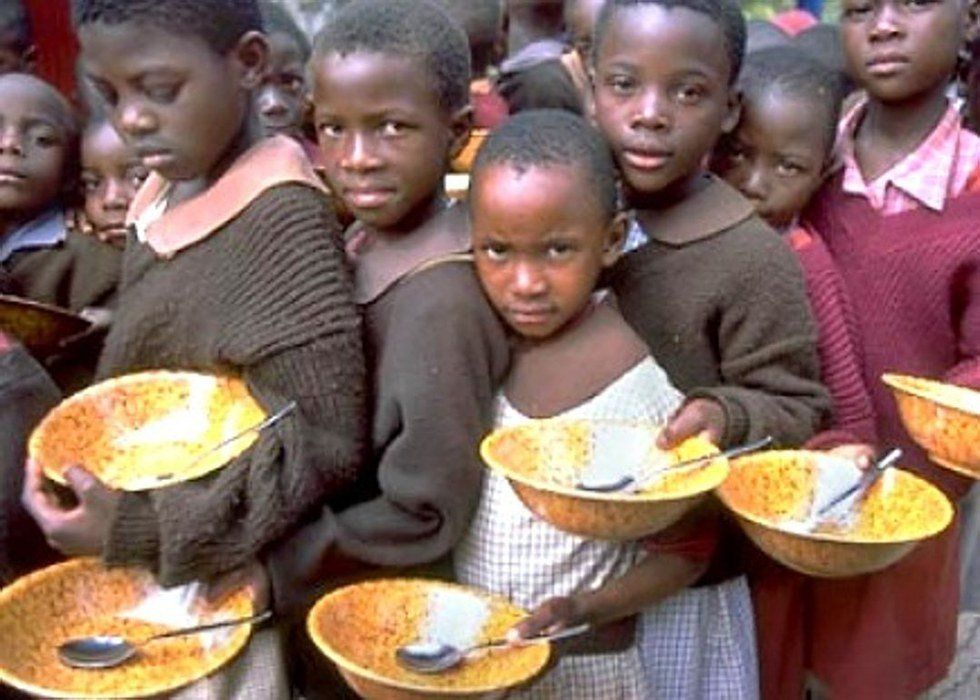There are “219,000 additional people to feed at the global dinner table” each night, according to an article by Lester R. Brown. There were an estimated 7.3 billion people living worldwide in 2015, and while 219,000 is not a large percentage of the world population, it makes a huge difference. One big question surrounding world hunger is who is at fault and how can we fix it?
One of the United Nations self-proclaimed purposes is to develop friendly relations among nations and promote social progress, better living standards and human rights. However, much like anything else the United Nations tries to accomplish, they are met with the problem of state sovereignty ( a concept that argues that a state is solely in charge of its business without any intervention from other states). Because of state sovereignty, the responsibility of maintaining peace and order among its citizens falls solely on the state. It is not until the state is obviously out of control can international organizations step in, and even then it can be a messy process. So the question of who is responsible for starving populations repeatedly occurs when discussing this issue of world hunger.
If it is decided that the state is responsible, what happens to the people? They are out of luck. If they cannot provide for themselves and cannot turn to the government for help, then they have no other choice but to starve. Sure, they could flee to another county, but that just raises a whole other issue of refugee and refugee intake policy. If it is decided that the state should be able to have outside help, when should that help come? After half the population is already malnourished? The United Nations and other international organizations clearly state that they are to promote human rights, but letting half of a state starve to death before coming to their aid is not the way to promote it, in my opinion. International organizations should put more emphasis on solving the hunger crisis and making sure every person in the world has enough food to eat a day and a decent water source.
If organizations like the United Nations step in, then the human rights issue can potentially be solved. The United Nations comes in, sets up programs and missions who’s responsibilities include trying to get food, water, and shelter to every person they can. In addition, the government could try to reestablish itself with a strong foundation so that they can eventually take care of their own people again. While this idea can be hard to achieve, mostly due to badly run governments, war, and unstable regions, at least there is an effort being made.
There are people in this world who are hungry. Because of the prevalence of this issue, hunger and thirst can be considered an epidemic. United Nations workers and organizations like UNICEF are already working in places but the importance of this epidemic needs to be recognized. The world today has too many technological advances for there to still be people not getting enough to eat every day. Hunger is an epidemic, a known epidemic at that, and needs to be solved as soon as possible.





















